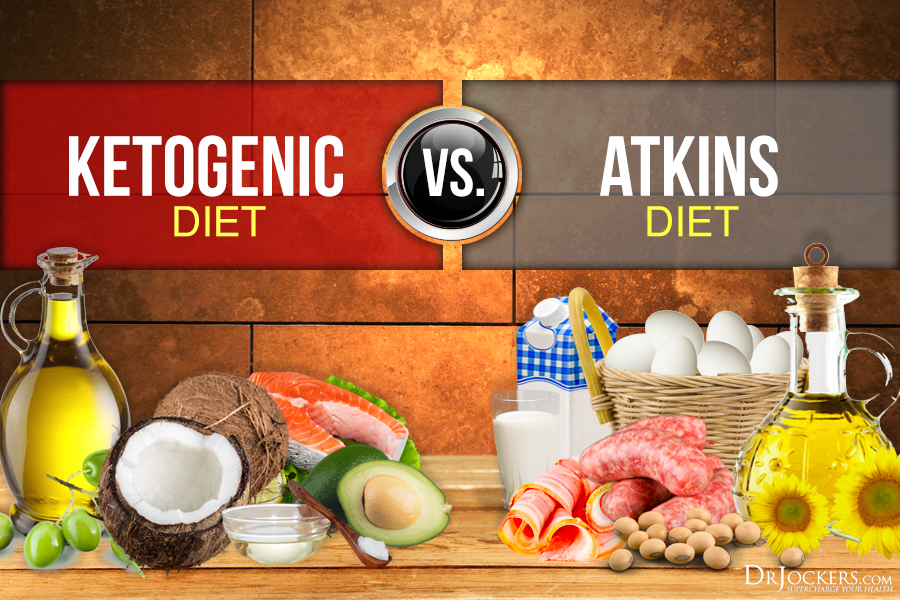 The Ketogenic Diet vs Atkins:
The Ketogenic Diet vs Atkins:
The concept of a low-carb diet is not all that new. In fact, the ketogenic diet was first used clinically as a treatment for epilepsy in the 1920’s. While our understanding of why these kinds of diets can have such profound benefits is still evolving, there are naturally many misconceptions that revolve around them. The Ketogenic Diet vs Atkins is one of the most common differentiations I am asked to make.
In reality, these two styles of eating are very similar. There are, however, a few minor details that make them drastically different from one another.
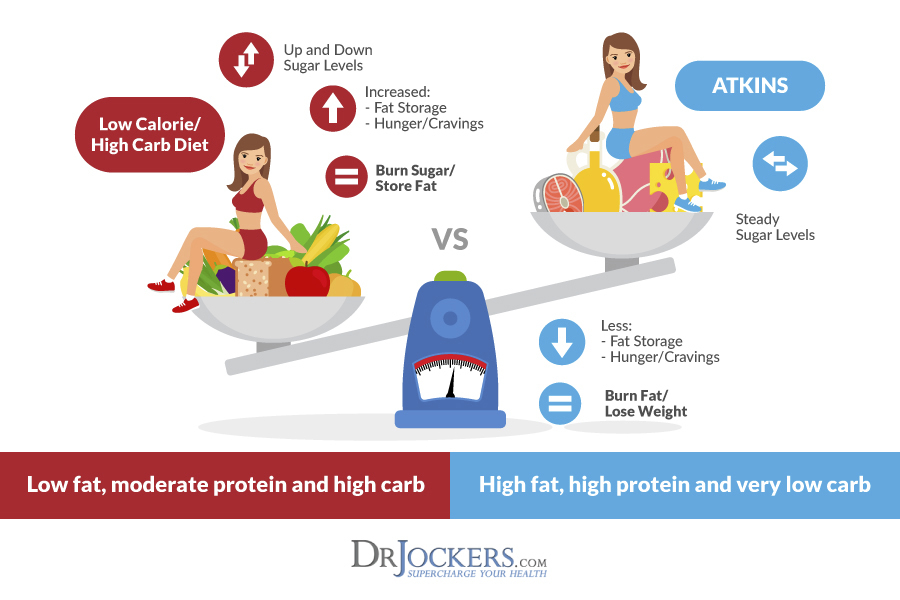
What is Atkins
The Atkins diet was pioneered in the 1970’s by Dr. Robert Atkins who was an American cardiologist. It emphasized an eating style that was low in sugar and carbohydrates (at least for a period of time) with the majority of calories coming from fats and proteins.
The Atkins diet grew a massive following as many people reported rapid weight loss and increased energy from cutting carbohydrates from their diets. This diet is generally laid out in phases that call for a slight variation in eating practices, typically revolving around the amount of carbohydrates you are allowed to eat in a day.
In general, there is very little mentioned about protein or fat intake in the Atkins diet. I will go into the significance of this later in the article.
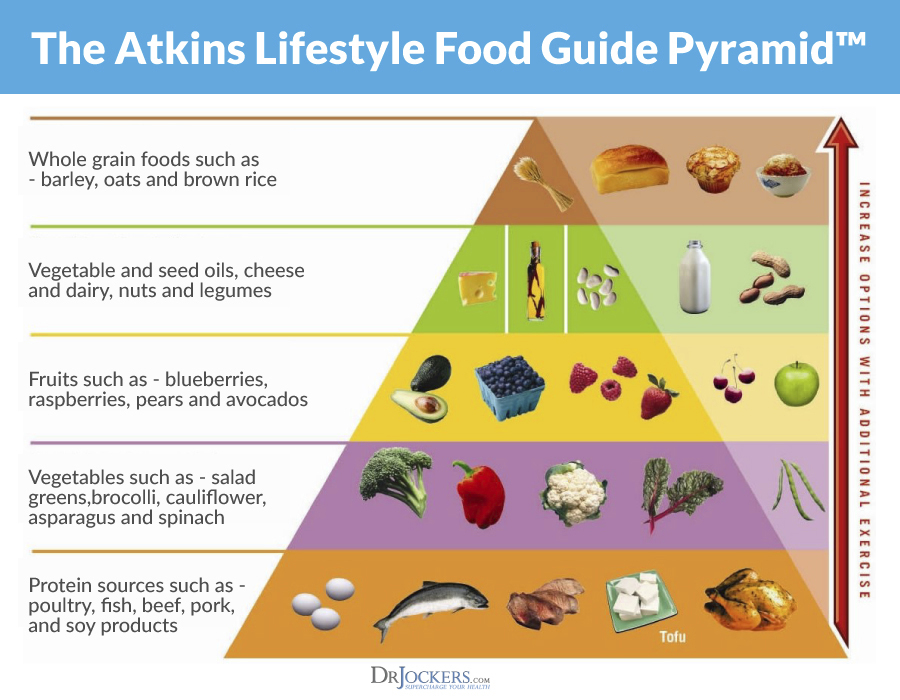
Phases of Atkins
The Atkins diet consists of 4 phases (1):
Phase I consists of a very low carbohydrate intake, 20-25 or less grams per day. This phase promotes a drop in blood glucose which eventually signals the body to burn fat for energy (ketosis). During this time, there will also be a rapid loss of retained body water followed by fat loss.
Phase 2 allows for up to 50 grams of carbohydrate per day. You start by adding 5 grams per day while monitoring your weight closely. This is meant to help you find a carbohydrate threshold where you can continue to lose weight.
Phase 3 allows for slightly more carbohydrates per day, up to 80 grams. In this phase, you add in 10 additional carbohydrates daily each week. You continue to monitor your weight to see if you reach a threshold where you begin to regain weight.
Phase 4 is when you have reached a target weight and have settled on a carbohydrate intake that does not promote additional weight gain. This is the maintenance phase where you remain for the rest of your life if you continue to follow the Atkins plan.
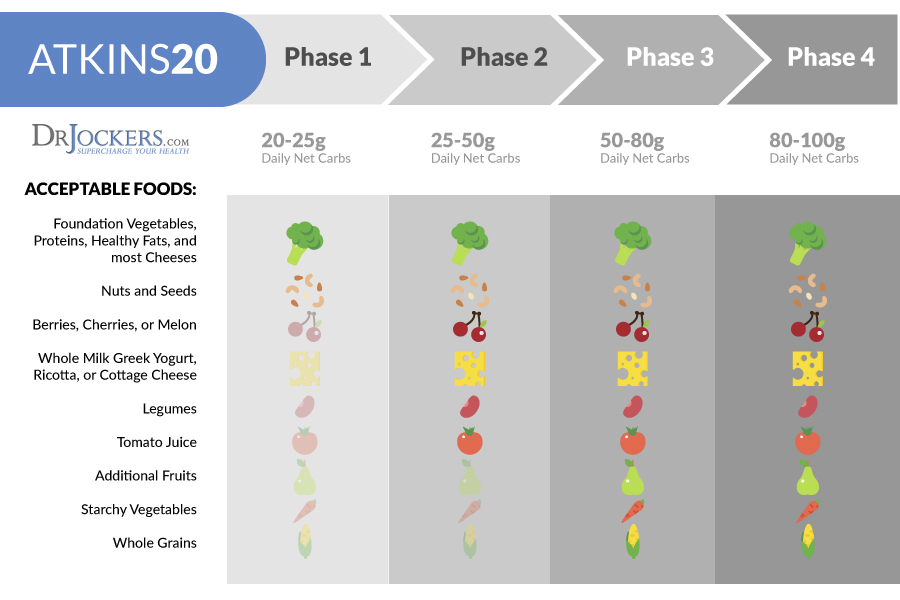
Benefits of Atkins
The Atkins diet provides a number of apparent benefits, likely due to its low-carb nature. In fact, the Atkins diet has many of the same benefits of a Ketogenic diet. In my opinion, a ketogenic diet may provide more sustainable and profound benefits simply due to its intention to get the body into a state of ketosis.
In addition to weight loss, the Atkins Diet may offer someone:
-
- Prevention and Treatment of Type II Diabetes – Stabilization of blood sugar (2)
- Balanced Cholesterol Levels (3)
- Reduced Risk of Neurological Disorders (especially when combined with antioxidants and fish oils)(4)
- Improvement in Metabolic Syndrome
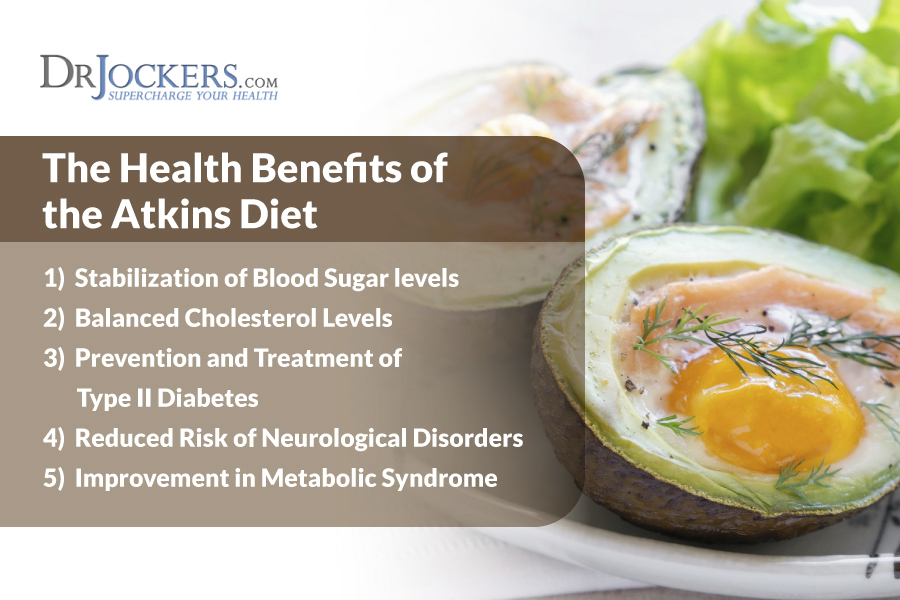
Recent Trends & Issues
While reducing carbohydrate intake is certainly a great decision for your health, there are certain aspects of Atkins that make it come up short. While there are certainly ways to make an Atkins diet better, most people I have come across are missing out on key factors for their health.
Processed Foods: Atkins has come out with a series of low-carb snack foods and shakes that, quite frankly, are not all that healthy. While they may seem nutritious on the surface, they are actually loaded with processed dairy, genetically modified vegetable oils, and additives, artificial sweeteners, and low-quality synthetic vitamins and minerals.
Vegetable Intake: The emphasis on vegetable intake is quite low on the Atkins diet. While this can technically be the case for any diet, the style of eating I recommend emphasizes consuming large and regular portions of many different types of vegetables. These contain valuable vitamins, minerals, antioxidants, and fiber that you will not get from other foods.
Protein: A common misconception is that, as long as you are not consuming many carbs, you can eat as much protein and fats as you want. Well, consuming high amounts of protein can actually promote an acidic balance in the body which is extremely stressful on your physiology. Acidic conditions are associated with fatigue, fibromyalgia, chronic inflammation, osteoporosis, and even cancer.
To me, the greatest benefits of a low-carb diet come from burning fat as a primary energy source instead of sugar. If you are consuming unlimited amounts of protein and not enough fats, then maintaining this fat burning state may not be as easy. This is because excess proteins will be converted into glucose via a process called gluconeogenesis.
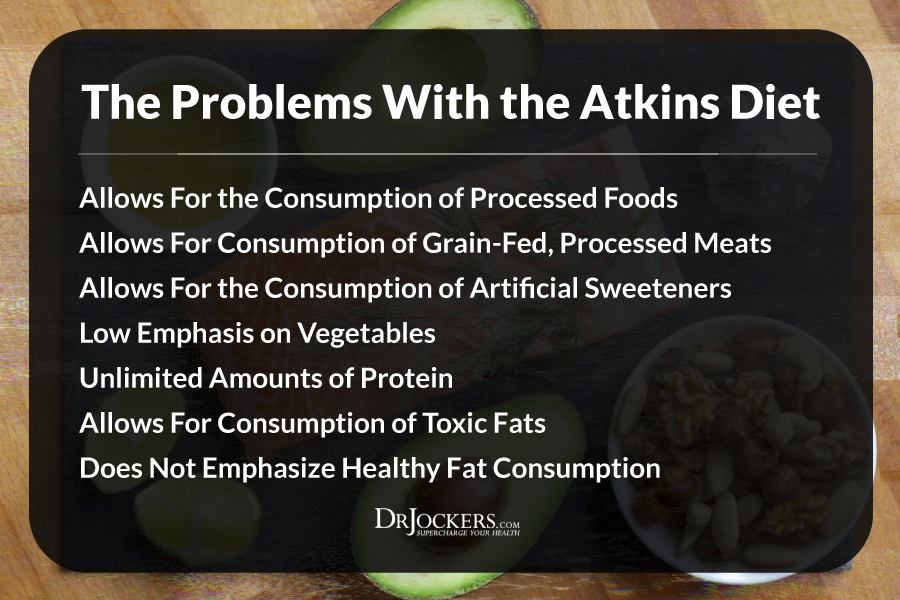
Is Ketogenic the Same Thing
A ketogenic diet is similar to Atkins in many ways. Both focus on low amounts of carbohydrates (at least initially) which can help facilitate the burning of fat for energy. As the Atkins diet goes on, carbohydrate intake increases and your fat burning potential goes down.
On the other hand, a ketogenic diet has the specific objective of placing the body into the fat burning state by emphasizing a high intake of fats and only moderate amounts of protein (5). While it is advantageous to consume a higher carb meal periodically, you remain in this fat burning state for the long-term.
In my experience, people experience much more significant and sustainable benefits following a ketogenic diet over the Atkins Diet.
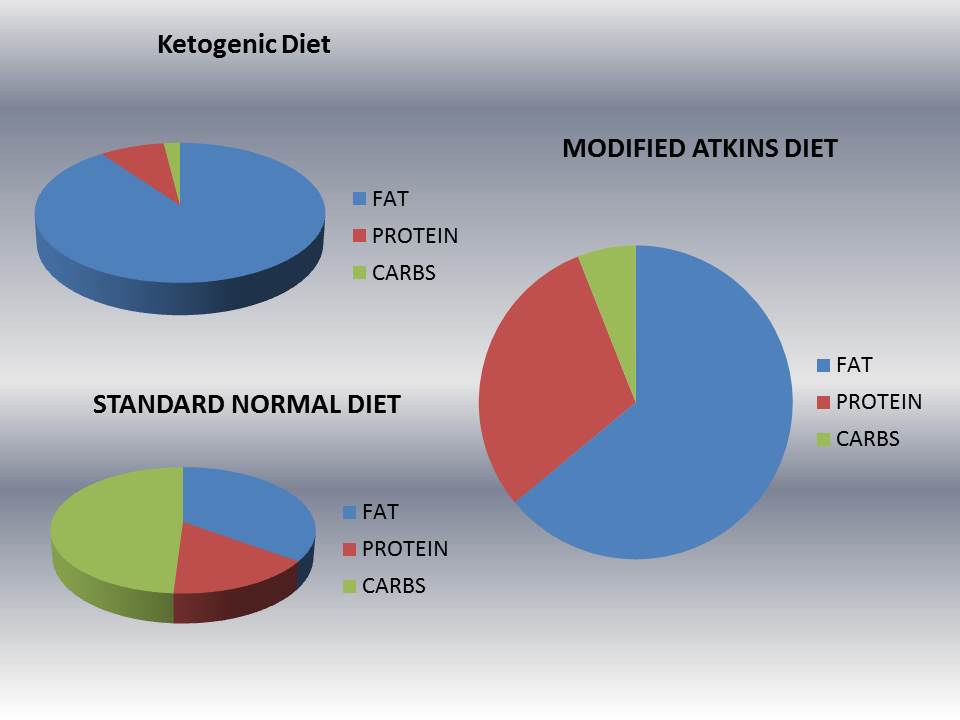
Benefits of Ketosis
As I said already, some of the most profound benefits of a low-carb diet come from burning fat as energy rather than sugar. While you may get into this fat burning state at the beginning of the Atkins diet, you likely will not remain there, leaving the doors open for a weight regain in the long run.
The ketogenic diet is designed to help you shift your metabolism and burn fat long term. Along with this shift in metabolism, the ketogenic diet has been shown to provide benefits such as improved energy, higher mental function, and anti-aging benefits (6, 7).
Additionally, one of the most profound benefits of a ketogenic diet is that it stimulates the upregulation of mitochondria within cells. Mitochondria are the energy production factories of your cells and when you improve their function not only do you get more energy, but your health improves in every way.
With more energy at a cellular level, your cells are able to carry out their functions much more effectively which includes things like immune function, brain function, and cellular regeneration.
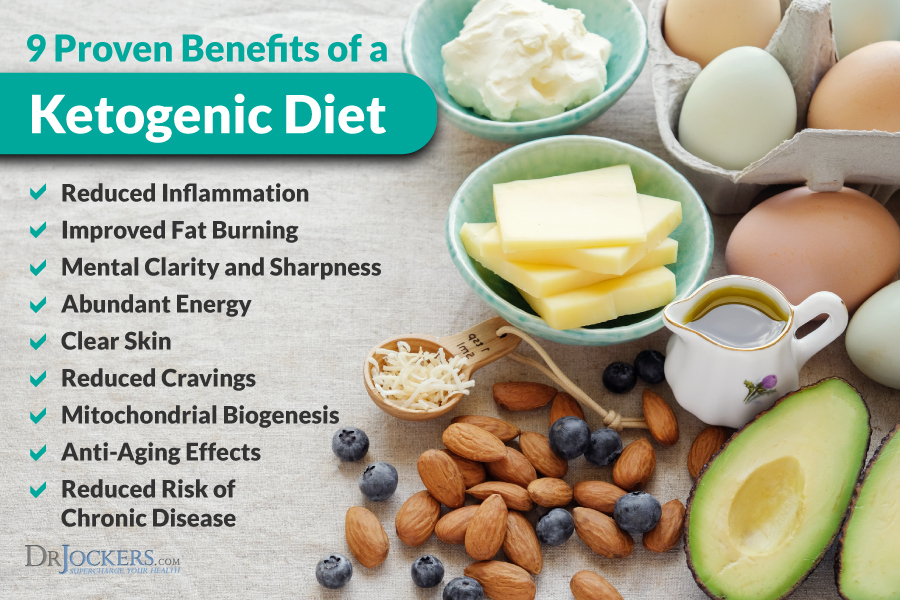
My Approach
I personally advocate starting with a Ketogenic Metabolic Makeover, followed by a cyclic ketogenic diet. This is where you follow a low-carb, high-fat eating plan for a month (or longer) to prime the fat burning furnace that is in your body. This is then followed by a cyclical ketogenic diet where you consume higher amounts of carbs once a week.
I also like to place a major emphasis on consuming plenty of herbs, spices, and vegetables, and only consuming animal products that were pasture-raised.
Part of the reason why a ketogenic diet is so anti-inflammatory is that the metabolism of fat produces less oxidative stress in cells compared to sugar metabolism. Combining this with high amounts of nutritious plant foods (especially antioxidants) only takes these benefits to the next level.
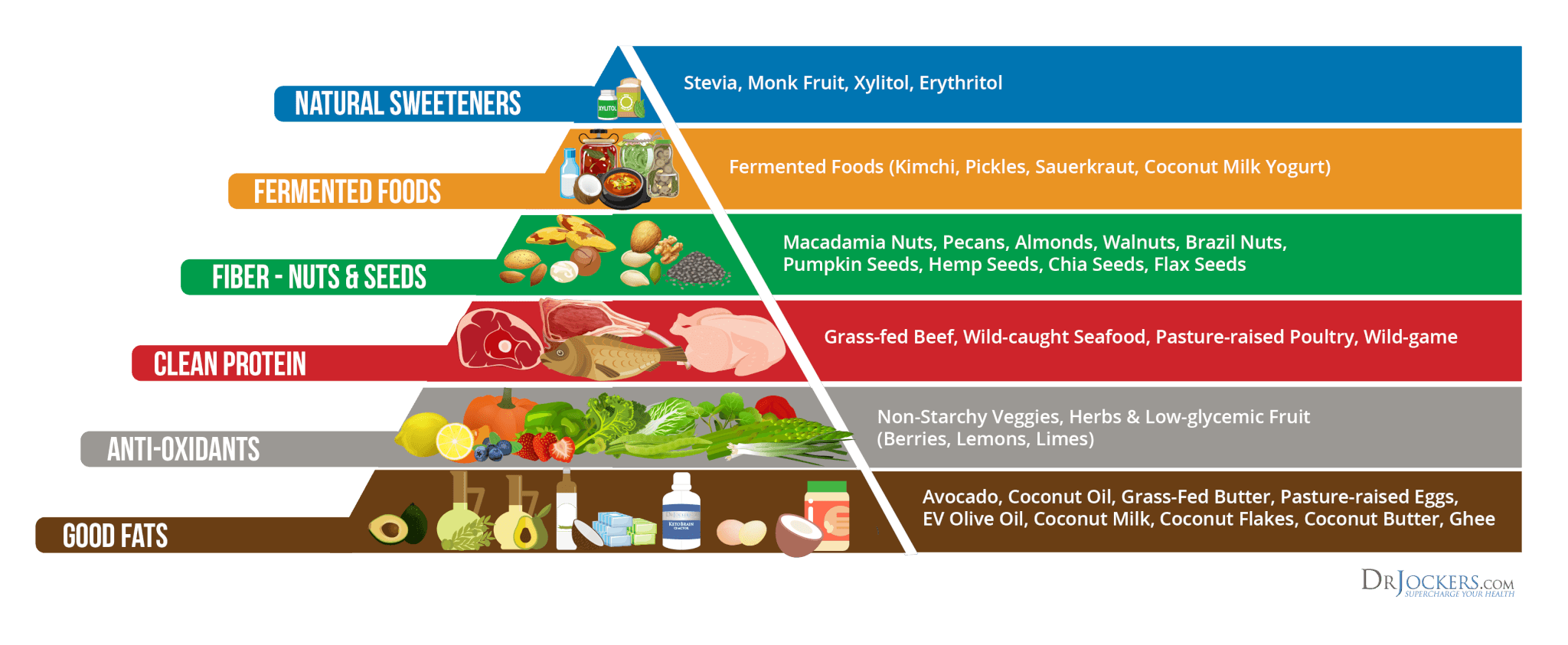
Summary
While there are similarities between the Atkins diet and a Ketogenic diet, I have found personally that people have much more sustainable weight loss following a ketogenic diet the way I lay it out. In addition to weight loss, the ketogenic diet is effective in improving health overall as it mitigates chronic inflammation and improves mitochondrial function. To me, in the comparison of the ketogenic diet vs Atkins, there is a clear winner.
If you are new to a ketogenic diet, I would recommend beginning with a Keto Metabolic Makeover or with my comprehensive online ketogenic program which can be found here.
If you want to work with a functional health coach, I recommend this article with tips on how to find a great coach. Our website offers long-distance functional health coaching programs with our world-class team of health coaches. For further support with your health and other goals, just reach out—our fantastic coaches are here to support your journey.
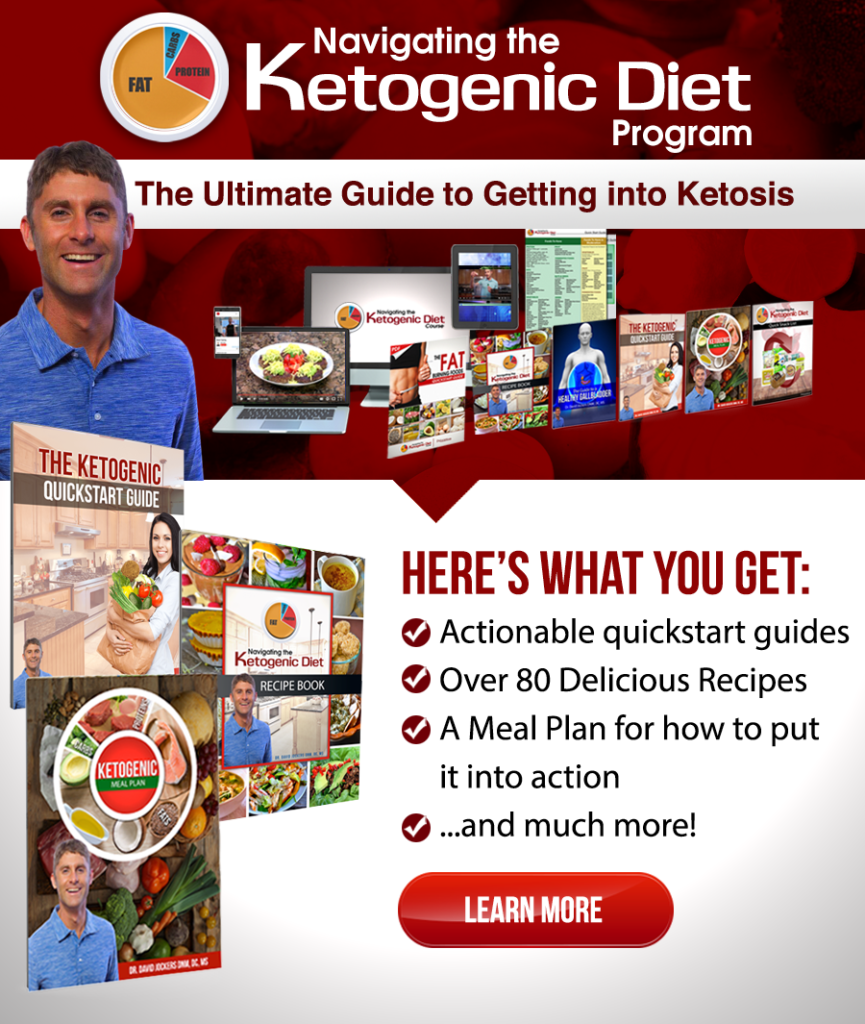

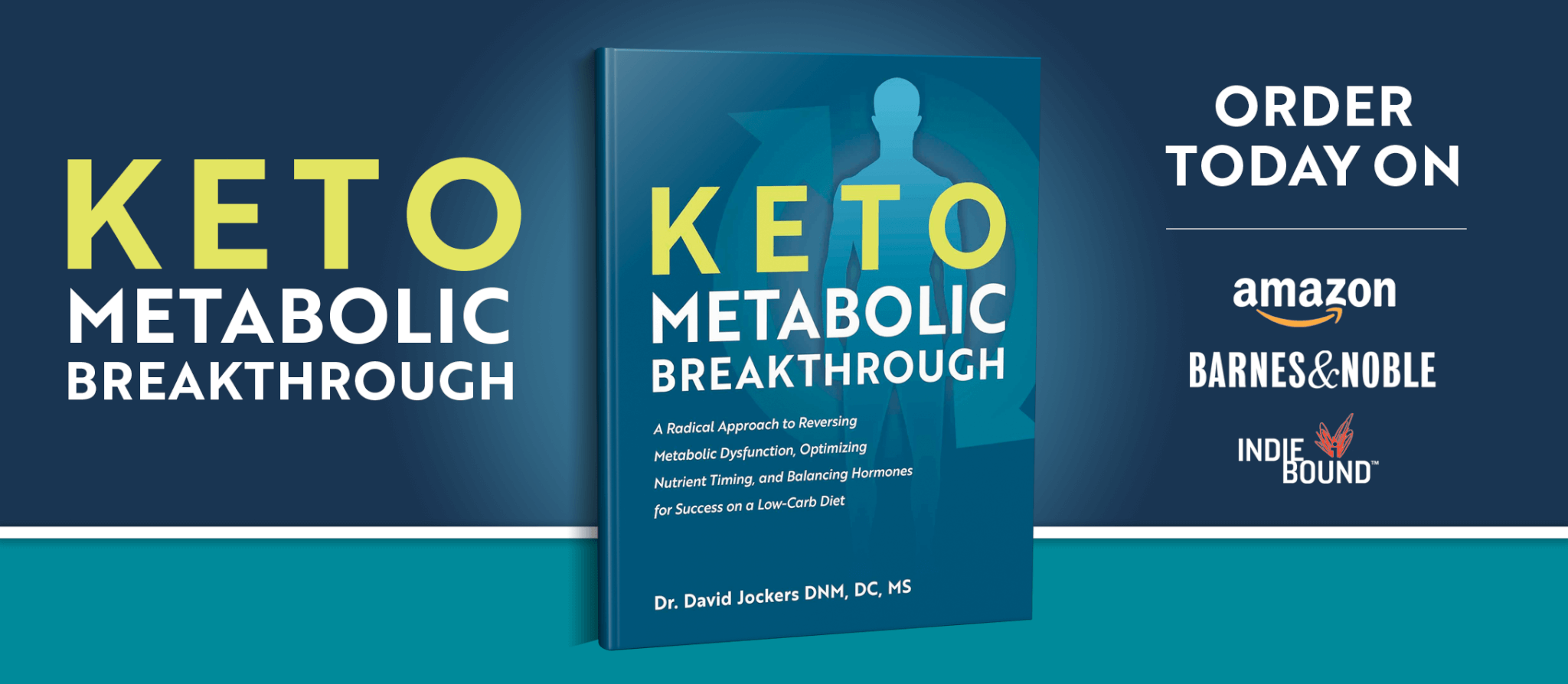


i been doing keto for some time but i mostly lost most fat at the start, 20+ of water weight, now i seen to barly lose anything unless i take a fasting day, (fasting seemed to be only way for me to lose weight normaly) and i try to stay around 1800ish cal a day. so i dont know what i am doing wrong..
Maybe something here can help Erik! https://drjockers.com/10-biggest-ketogenic-diet-mistakes/
I have Type 1 diabetes. For years my doctor would not let me do a ketogenic diet. Then I learned that my endocrine doctor didn’t know much about nutrition. After 15 years of in and out of poorly controlled A1c, he agreed to let me try keto. My A1c which jumped between 9.3 and 8.3% turned into 6.3 and even lower to 5.8. My doc was amazed. I lost 40 pounds and have never looked back. I NEVER eat sugar, flour, fruit, cereal or corn or potatoes of any kind. I make grain free granola and have it with coconut milk. I feel great and am in control of my diabetes. I never feel deprived, I bake, cook and live a total keto life. I don’t buy shredded cheese because it has cornstarch in it. Most people don’t know that. I have learned a lot from Dr. Jockers and of course Dr. Atkins. Cudos to you for improving my life and enlightening the public. I wouldn’t go back for ANYTHING!
What an amazing testimony Harriet!! Thank you for sharing that!
This is literally the ONLY site and person I’ve seen that says that Keto is high carb… which is false. I’ve been doing Keto for over a year. It’s 70% healthy fats, 25% protein and 5% carbs. You aren’t even supposed to consume more than 20 – 25 grams of carbs, per day.
Hi Chayanne, The ketogenic diet is not a high carb nutrition plan. Depending on a person’s activity levels, carbohydrate intake is 5-10% net carbs and depends on the type of ketogenic diet as you can read here: https://drjockers.com/follow-ketogenic-diet/. Blessings!
Why is low glycemic not mentioned as a healthy way to get healthy and stay healthy. As soon as I started to read your artical I new you were selling something. I try to find articals to read and get information instead I find a sales pitch.
Hello Carol, what exactly was being sold here?